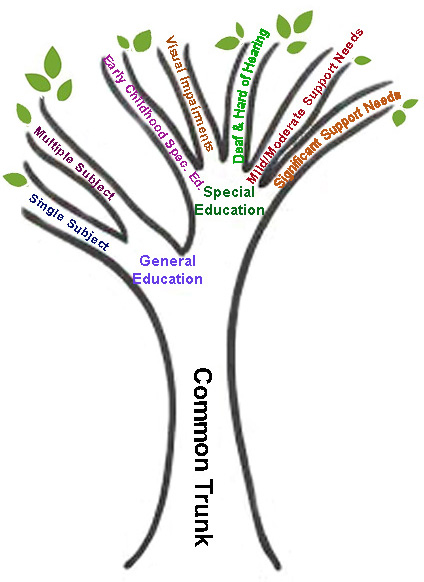
The Forefront of Inclusive Education Attallah College Receives National Grant for Major Graduate Program Redesign
August 13, 2018
The Attallah College of Educational Studies was recently awarded a special grant by the California Council on Teacher Education (CCTE) Special Interest Group (SIG) on Inclusive Education. The grant, made possible by the CEEDAR Center, a national center funded by the US Department of Education’s Office of Special Education Programs, is part of a state and national effort to create an inclusive system of education. The goal is to reform traditional general and special education policies and practices in order to meet the academic and social-emotional-behavioral needs of all students.
The Attallah College is using the grant funding to redesign its accelerated five-year bachelor’s degree plus master’s in curriculum and instruction (4+1 MACI) program.
“The MACI redesign will integrate coursework and field experiences to make sure they are inclusive across the board. We’re thinking about how to provide an integrated, high-quality experience so Chapman graduates are prepared to teach all kids,” explained Dr. Amy Ardell, Attallah College Assistant Professor and MACI Program Coordinator.
Following the program redesign, Chapman’s MACI students will earn bachelor’s and master’s degrees and qualify for credentials in both general and special education in five years, with no additional coursework.
Why Redesign?
The MACI changes will align the program with California state education trends, which are moving toward a universal credential design that facilitates inclusive education.

Common Trunk of Teacher Education, as proposed by California’s Statewide Task Force on Special Education
Over the last two years, the California Commission on Teacher Credentialing (CTC) has been working toward a model that ensures “candidates are thoroughly prepared and able to teach all students in any setting.” New requirements for teacher credentials will be based on a common trunk, which is defined as a “set of knowledge, skills and abilities in which all teaching candidates—both general education and special education—would have to demonstrate competence.”
In its initial 2015 report, California’s Statewide Task Force on Special Education detailed the long-term goal: “California envisions general education and special education working together seamlessly as one system that is designed to address the needs of all students—as soon as those needs are apparent.”
“The state of California is going in a progressive direction with education right now that aligns with the Attallah College teacher education program goals,” said Dr. Ardell. “The CCTE grant allows Chapman to stay out in front of these changes.”
Assistive Technology
In addition to the $12,000 CCTE grant, Chapman’s Attallah College will provide matching funds for the purchase of assistive technology, including iPads and specialized software, for use in its teacher education program.
This technology will allow Chapman teacher candidates to work with K-12 students with disabilities and specialized learning needs in Chapman’s Kathleen Muth Reading Center, which has been providing after-school tutoring to approximately 50 at-risk K-5 students per year since 1975.
“With the help of assistive technology resources, our students will be better positioned to support all children. They will then be able to enter their student teaching rotation with specialized training in the uses of assistive technology with various learners,” said Dr. Margaret Grogan, Dean of the Attallah College.
As more and more schools are moving to a one-to-one technology model, this will give Chapman graduates important real-world job experience.
“It is important we stay on the cutting edge of teacher education. With this MACI redesign, Attallah College will be responsive to state requirements as well as to what our school district partners are asking for and doing,” said Dr. Michelle Samura, Attallah College Associate Professor and Associate Dean of Undergraduate Education.
Benefit for MACI Students
Chapman students who graduate with both general and special education credentials will have a significant advantage on the job market.
“A lot of districts, in particular our key partner Orange Unified School District, are getting rid of special day classes altogether and moving to a co-teaching model,” said Dr. Ardell. “If that’s where education is going — we’re not going to be segregating kids — Chapman graduates will have that expertise to work more effectively.”
Bianca Adamo (MACI ’18), a recent graduate of Chapman’s MACI program who will be teaching second grade this fall at her alma mater, Holy Spirit School in San Jose, agreed: “Allowing students to earn both credentials will not only make them more qualified in the field, but also give students the opportunity to experience both types of classrooms and have a stronger understanding of how to handle and work with students with special needs.”
“Overall, I strongly believe that adding an option for a special education credential through MACI will not only make this program different from other schools but will create even more well-rounded teachers that will be confident to take on all challenges that teaching brings.”
Visit Attallah College’s webpage for more information about our news, events, faculty research, and undergraduate and graduate programs.

